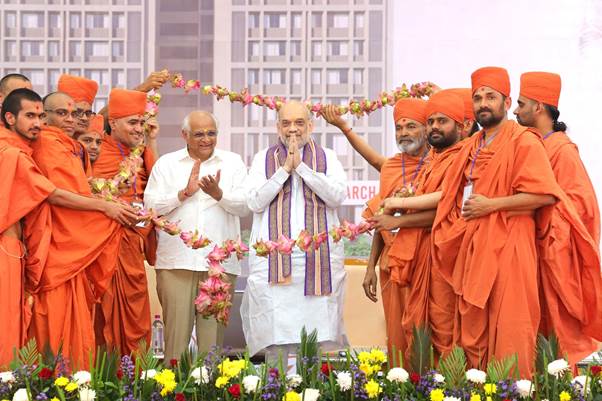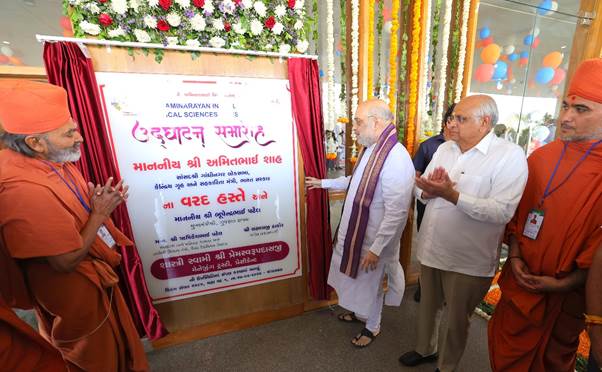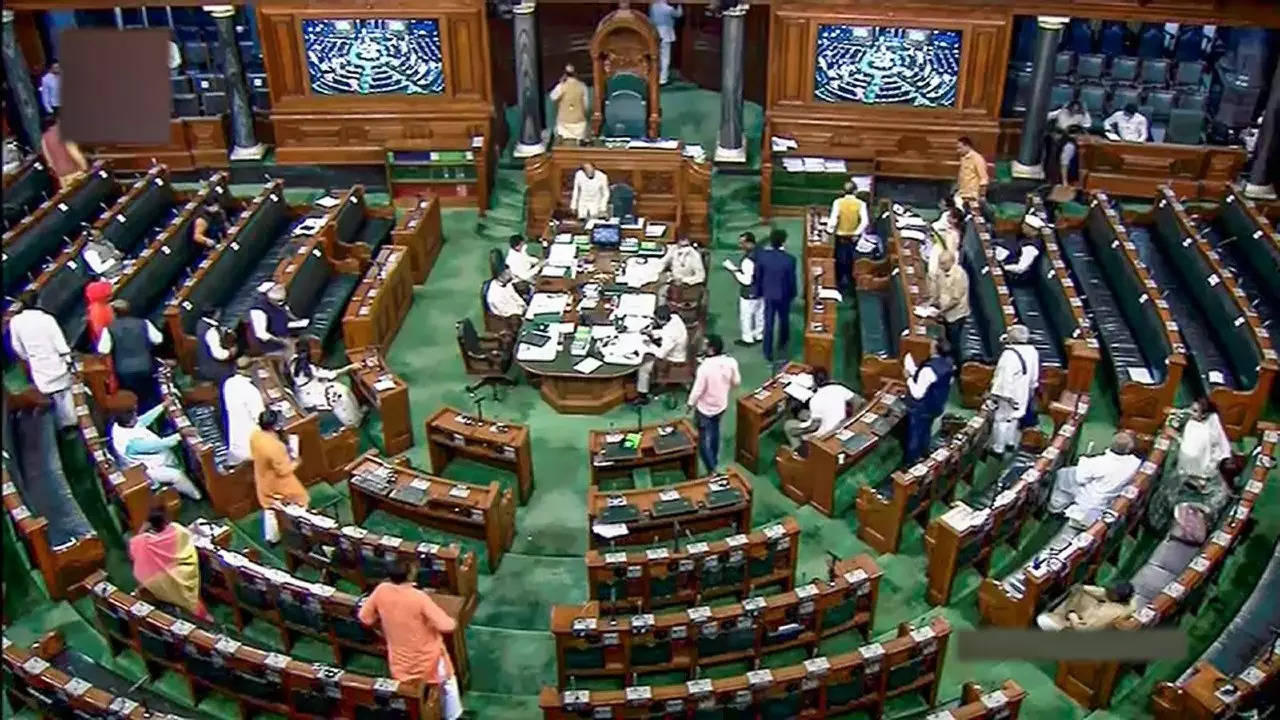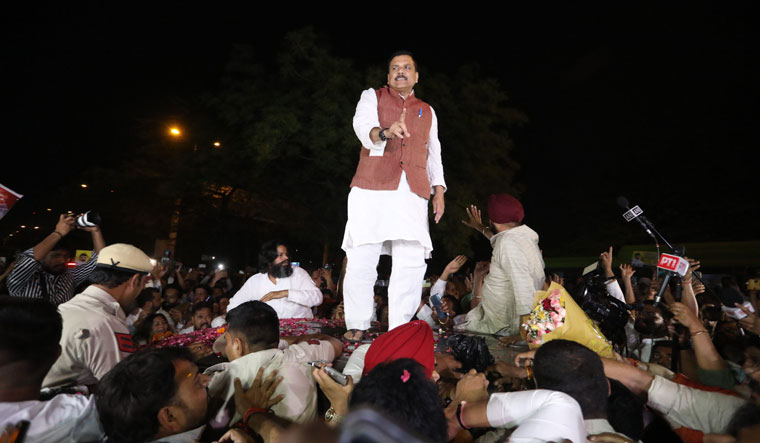The inauguration of the Swaminarayan Institute of Medical Science and Research (SIMS) in Kalol, Gujarat, marked a momentous occasion, not only for the local community but also for the state’s healthcare landscape and the nation’s educational ecosystem. Union Home Minister Amit Shah’s presence at the ceremony underscored the significance of this event and provided a platform to highlight the remarkable advancements made in these crucial sectors under the leadership of Prime Minister Narendra Modi.
 Shah lauded the Swaminarayan sect for their long-standing dedication to social welfare, particularly their emphasis on education and healthcare. He acknowledged their pivotal role in promoting literacy across Gujarat, especially among underprivileged communities, and their unwavering commitment to establishing Gurukuls – traditional institutions of learning – that have played a crucial role in shaping the state’s educational landscape.
Shah lauded the Swaminarayan sect for their long-standing dedication to social welfare, particularly their emphasis on education and healthcare. He acknowledged their pivotal role in promoting literacy across Gujarat, especially among underprivileged communities, and their unwavering commitment to establishing Gurukuls – traditional institutions of learning – that have played a crucial role in shaping the state’s educational landscape.
Shifting his focus to healthcare, Shah emphasized the exponential growth witnessed in medical facilities across India over the past decade. He attributed this progress to the Modi government’s targeted initiatives, such as establishing new AIIMS institutions and medical colleges. These efforts have significantly increased the number of available MBBS seats, making medical education more accessible to aspiring students from diverse backgrounds and alleviating the growing shortage of medical professionals in the country.
Shah’s address extended beyond the realm of healthcare, highlighting the government’s broader efforts to enhance access to higher education across various disciplines. He pointed to the establishment of new institutions like IITs, IIMs, and universities, creating a wider range of opportunities for students to pursue their academic aspirations and equip themselves with the necessary skills to excel in their chosen fields. This emphasis on expanding educational opportunities fosters not only individual growth but also contributes to the nation’s overall intellectual and economic development.
Recognizing the importance of linguistic diversity and inclusivity, Shah commended the transformative new education policy, which allows students to pursue medical and engineering studies in their native Indian languages. This groundbreaking initiative removes a significant barrier for students from non-English speaking backgrounds, empowering them to excel in these fields and contribute meaningfully to the healthcare and engineering sectors. This policy shift underscores the government’s commitment to fostering inclusivity within the educational system and ensuring that language doesn’t become a hindrance to pursuing higher education and contributing to society.
Shah further commended Prime Minister Modi for his unwavering commitment to promoting India’s rich cultural heritage on a global platform. He highlighted how Modi utilized international stages to showcase the nation’s language, culture, and religious traditions, fostering a sense of pride among Indians worldwide. This focus on cultural preservation and celebration strengthens India’s identity on the global stage and fosters a sense of unity and belonging among its citizens.
The inauguration of SIMS signifies not only the addition of a new healthcare facility but also serves as a testament to the collective efforts of the Swaminarayan sect and the government in:
- Improving healthcare infrastructure: The new institute expands access to quality healthcare services for the local community, contributing to the overall improvement of healthcare infrastructure in Gujarat and reducing the burden on existing facilities.
- Expanding access to education: By offering medical education opportunities, SIMS empowers individuals to pursue careers in healthcare, potentially alleviating the shortage of medical professionals in the region and contributing to a healthier future for the community.
- Celebrating India’s diverse cultural tapestry: The institute stands as a symbol of the nation’s diverse cultural landscape, reflecting the importance of inclusivity and fostering a sense of pride in India’s rich heritage.




